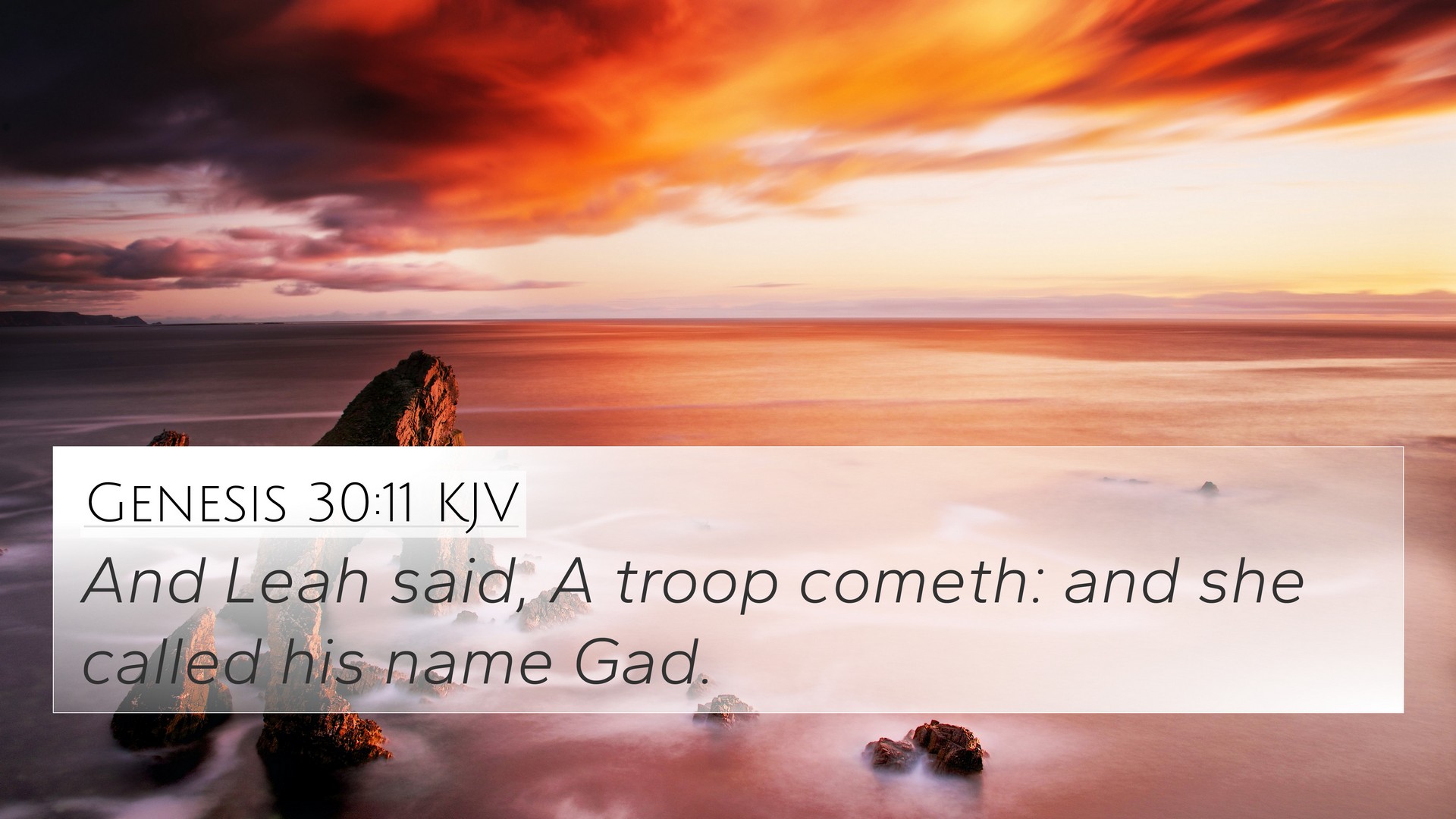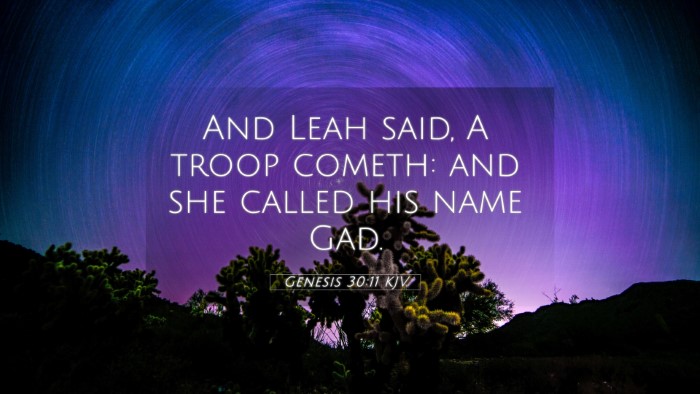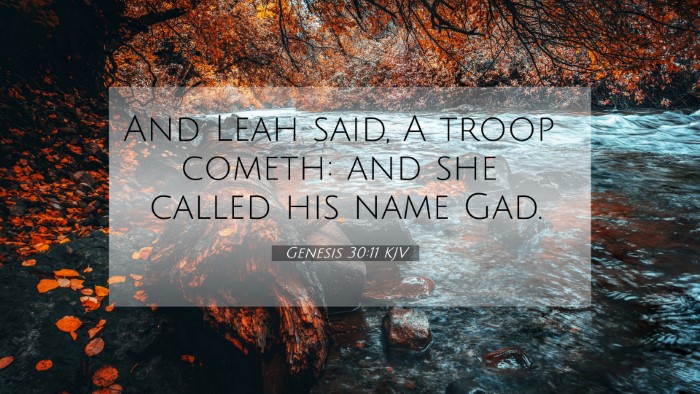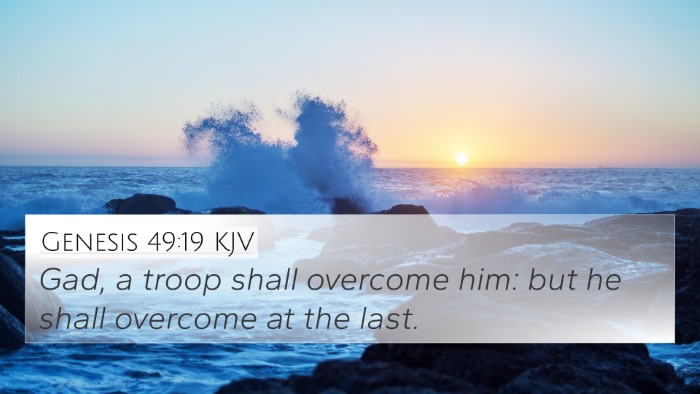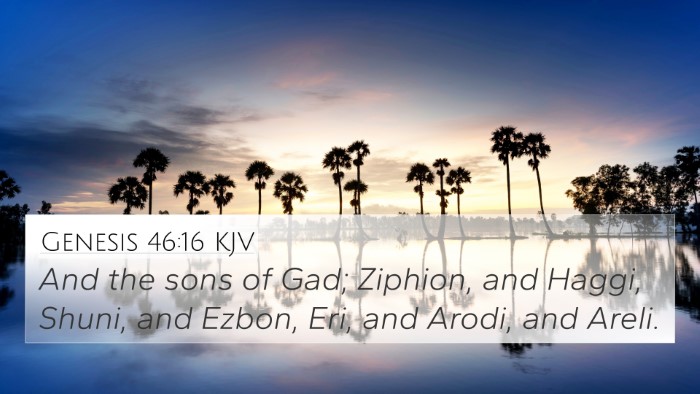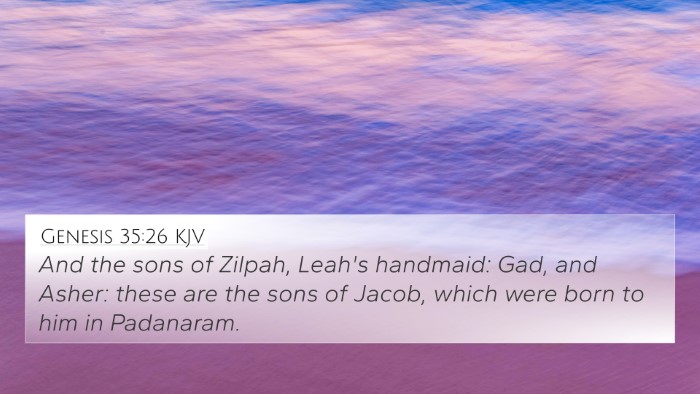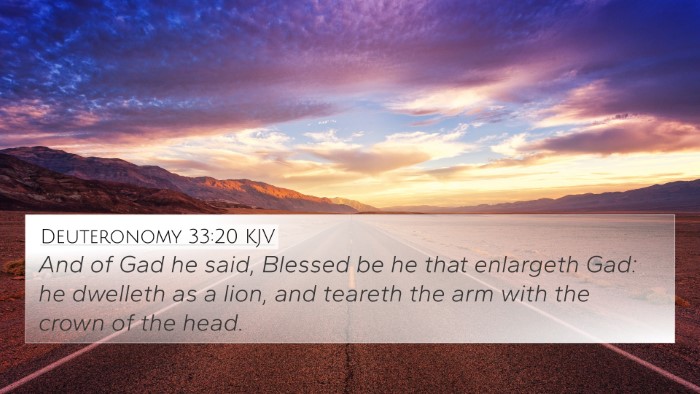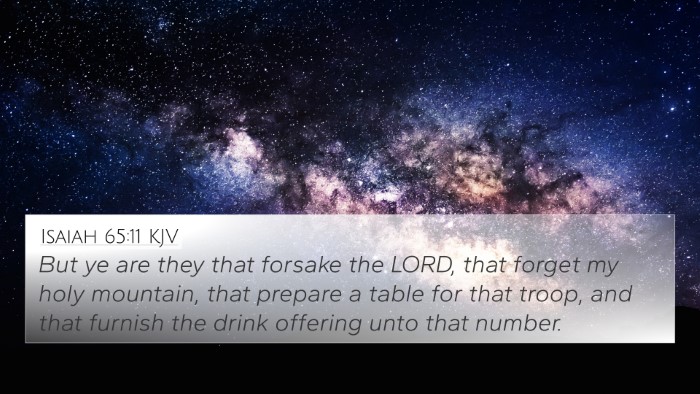Understanding Genesis 30:11
Verse: "And Leah said, A troop cometh: and she called his name Gad." (Genesis 30:11)
This verse is part of a broader narrative in the book of Genesis, particularly within the account of Jacob, Leah, and Rachel. Leah’s exclamation, along with her naming of Gad, reveals several important aspects about the cultural and theological implications of this scripture.
Commentary Insights
Drawing from insights of Matthew Henry, Albert Barnes, and Adam Clarke, we can gather a rich understanding of the meaning behind this verse.
Matthew Henry's Commentary
- Expression of Triumph: Henry notes that Leah's declaration of a "troop" reflects her sense of victory and joy in having another son, highlighting the rivalry between her and Rachel.
- Significance of Names: He emphasizes the importance of names in Hebrew culture, noting that naming a child often signifies the mother's feelings or circumstances during childbirth.
Albert Barnes' Commentary
- Military Connotation: Barnes suggests that the term "troop" may imply that this son would contribute to the strength and numbers of the family, emphasizing the importance of lineage and familial advancement.
- God's Favor: He connects Leah's situation with divine favor, considering how God rewarded her with children amidst her struggles.
Adam Clarke's Commentary
- Cultural Context: Clarke highlights the cultural context of polygamy in Jacob's family and how this dynamic affected Leah’s and Rachel’s relationships.
- Prophetic Implication: He underscores the prophetic implications of Gad being the progenitor of a tribe and how God would use these tribes in Israel's history.
Bible Cross-References
Genesis 30:11 can be cross-referenced with various scriptures to deepen understanding:
- Genesis 29:32 - Leah's first child, Reuben, and her feelings of being unloved.
- Genesis 30:9 - Rachel's struggle with barrenness and Leah's reaction.
- Genesis 49:19 - Jacob's prophetic blessing of Gad as a warrior.
- 1 Chronicles 5:11-26 - The genealogy of the tribe of Gad.
- Exodus 1:1-7 - The growth of the Israelite population, descending from Gad's lineage.
- Deuteronomy 3:12-17 - The allocation of land to the tribes, including Gad.
- Judges 5:17 - The tribe of Gad's bravery during the battle against Sisera.
Thematic Connections
Genesis 30:11 also connects with several biblical themes:
- Identity and Destiny: Through naming, we find a deeper sense of identity and purpose, echoing throughout scripture.
- Divine Favor: The continuous theme of God’s grace towards Leah resonates with the broader narrative of God choosing the less favored.
- Human Struggle: The rivalry seen in Leah and Rachel's relationship reflects many biblical narratives dealing with human conflict and divine providence.
Cross-Referencing Biblical texts
The practice of cross-referencing Biblical texts can reveal rich insights. For instance:
- The connection between Leah's story and the story of Hannah in 1 Samuel highlights similar themes of barrenness and divine intervention.
- Gad’s fierce nature can be paralleled with King David’s mighty men, showcasing the legacy of strength from Leah’s descendants.
Using Bible Cross-References for Deeper Study
To engage deeply with Genesis 30:11 and understand its implications, consider the following methods:
- Tools for Bible Cross-Referencing: Utilize a Bible concordance or a cross-reference Bible study guide to locate related verses.
- Comparative Bible Verse Analysis: Explore similar themes by comparing verses within the Old and New Testaments.
- Biblical Chain References: Trace themes or narratives across scripture through chain referencing techniques.
Conclusion
In conclusion, Genesis 30:11 provides profound insight into the personal and communal struggles of the characters involved. Understanding the sociocultural context, the weight of the names, and the interconnections between this verse and others deepens our overall understanding of the scripture. This verse serves as a springboard for exploring themes of identity, divine favor, and human emotion within the expansive narrative of the Bible.
By utilizing various Bible reference resources and methods of cross-referencing Bible study, one can uncover a wealth of knowledge and understanding from this and many other verses within the sacred text.
